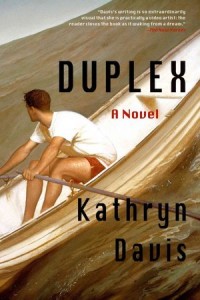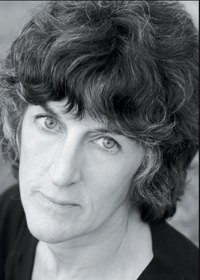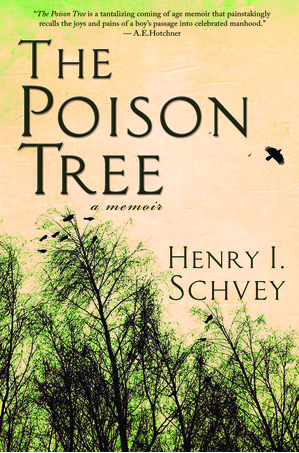Share the post "Sitting Down with Kathryn Davis"
by Lisa Miller
 Kathryn Davis was gracious enough to answer a rather long list of questions about her writing, her awards, and what it’s like to be a “Hurst Writer in Residence” at Washington University. Ms. Davis will be reading from, discussing, and signing her book Duplex at Left Bank Books on November 6th. Please click here for more details.
Kathryn Davis was gracious enough to answer a rather long list of questions about her writing, her awards, and what it’s like to be a “Hurst Writer in Residence” at Washington University. Ms. Davis will be reading from, discussing, and signing her book Duplex at Left Bank Books on November 6th. Please click here for more details.
What does it mean to be a “Hurst Writer in Residence” at Washington University? How did it come to be?
Fannie Hurst grew up in St Louis and attended Washington University; her family was quite well off. She made her own fortune, though, with her fiction, and left a considerable bequest to Washington University’s English Department. The more I read about Fannie, the sadder I feel about posterity’s harsh judgment of her. (“Hope for the best, expect the worst/ You could be Tolstoy or Fannie Hurst,” goes a Mel Brooks lyric.) While it’s true that her novels haven’t stood the test of time (see below re: prizes), Fannie Hurst campaigned for women’s rights and gay rights, was a delegate to the World Health Organization and on the WPA’s advisory committee, plus she had a long-standing affair with an arctic explorer.
You have won several writing awards. Which award do you hold most dear? Why?
I have mixed feelings about prizes. Of course you want to win them, just as you’re perfectly well aware of how unreliable they are as gauges of literary excellence. It’s a humbling experience to read the list of past Pulitzer winners: the further back you go the more names you’ve never heard of. That said, I suppose the prize I hold most dear is the Janet Heidinger Kafka Prize for Fiction by an American Woman. This is partly because it’s the first prize I ever won (as an adult), and partly because it was conferred by the University of Rochester, where Joanna Scott—a fiction writer I greatly admire—was instrumental in making the choice.
How would you describe your writing? What makes it unique and interesting? Did you specifically develop your style or did it just evolve?
You have no idea how difficult it is to describe your own writing! One thing I can say is that I ended up being a writer because a writer is her own boss, which is another way of saying that my books tend to be unconventional, and that—if I’ve succeeded in meeting my own objectives—no two of them are alike. If I were going to generalize, though, I think the one thing my books have in common is a preoccupation with the animating spirit, with figuring out what it is that makes us be alive, that sets us apart from, say, a table. Another thing my books have in common is that they were written with my e ars: I hear all my sentences, my paragraphs, my chapters, as well as the silences inherent in the transitions between them (which are, really, my favorite things about what I write).
ars: I hear all my sentences, my paragraphs, my chapters, as well as the silences inherent in the transitions between them (which are, really, my favorite things about what I write).
You are obviously a very successful writer. What would you consider to be your breakthrough piece of writing? Why?
It’s funny; I don’t think of myself as a very successful writer. I think of myself as a writer who has been lucky enough to write the books I want to write and to get them published—in that way I suppose you could say I’ve succeeded. Still, every time I publish a new book, there are always quite a few reviewers who marvel at the fact that they’ve never heard of me.
You have worked with several publishers. Was it that you submitted your work to different publishers or that different publishers sought out your work?
One of the reasons I’ve moved from publisher to publisher has been because the powers that be (i.e. the marketing people) haven’t always thought of me as especially successful (i.e. a big seller.) When I entered the world of publishing it was a very different place. After I sold Labrador (un-agented) to Farrar, Straus and Giroux, Roger Straus Sr. welcomed me into the FSG family. He told me that they didn’t buy books; they bought authors. The implication being that I’d be with FSG until the day I died. In a way I feel like Graywolf, the small, independent publishing house I’m with now, is similar to the FSG of olden days.
What are your thoughts on the literary community in St. Louis? Have you had opportunities to be involved in it? If so, what?
Because I’m a part-time resident of St. Louis, my sense of its literary community is pretty parochial, essentially limited to those members of it I know through Washington University. One thing that impresses me is the liveliness of the community, particularly as it’s influenced by those former MFA students who have chosen to remain in the area.
What advice can you give to writers still looking to breakthrough?
The best and only advice is I have for writers is to keep writing and keep reading. Write and read. Read and write. The marriage of art and commerce—which occurs for the most part in the vast halls of the New York publishing houses—is always an uneasy one; you can’t count on the world to give you what you want. You have to love what you’re doing so much that the mere fact that you get to do is enough.
We are excited about your Left Bank Book signing event. What are the details?
The reading & book signing is at 7:00 PM, Wednesday November 6, Left Bank Books, Central West End (399 N. Euclid). I’ll read. I’ll answer questions. I’ll sign.




